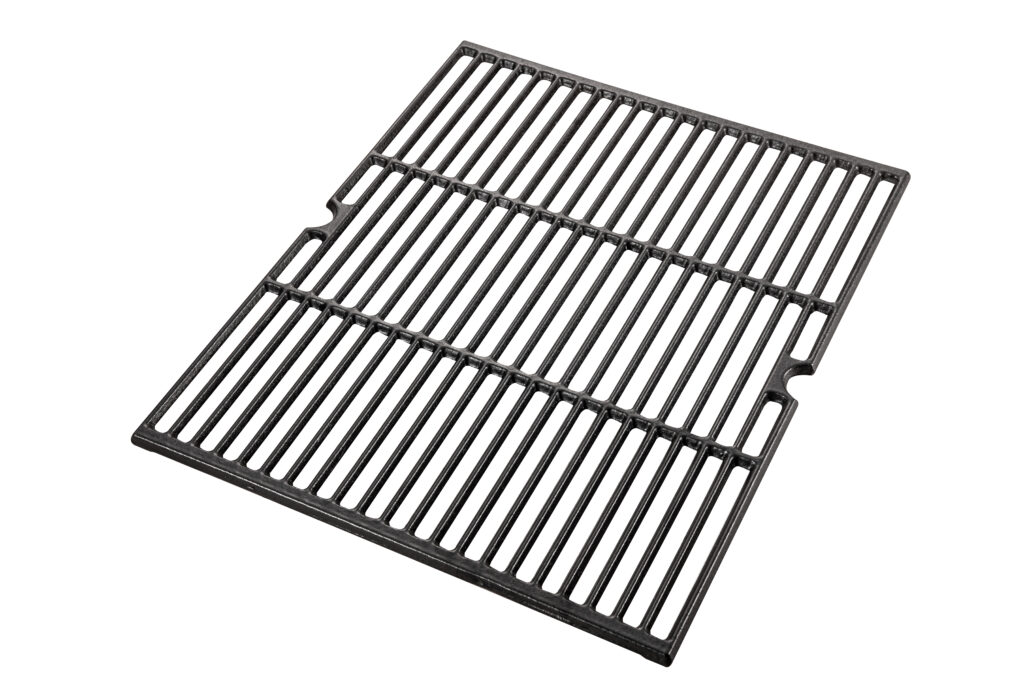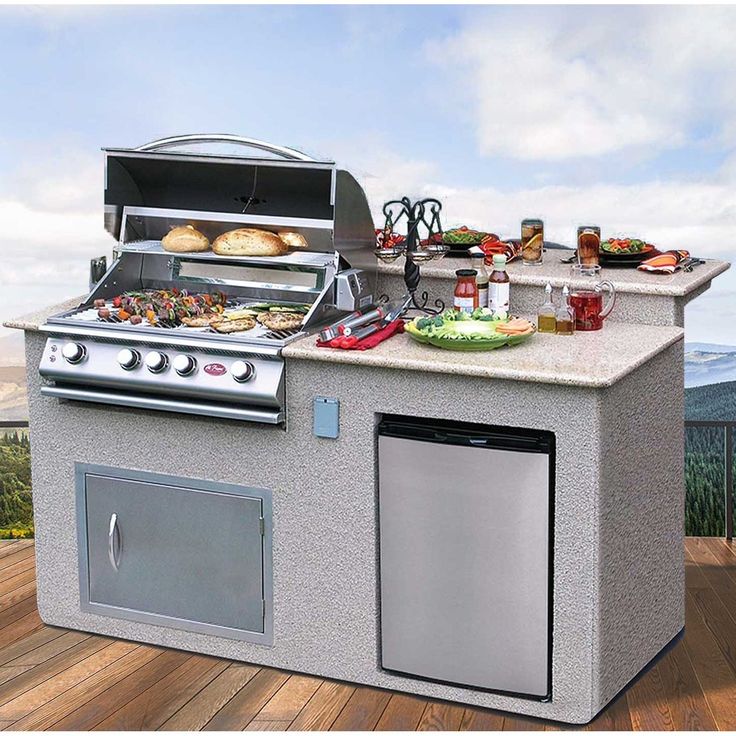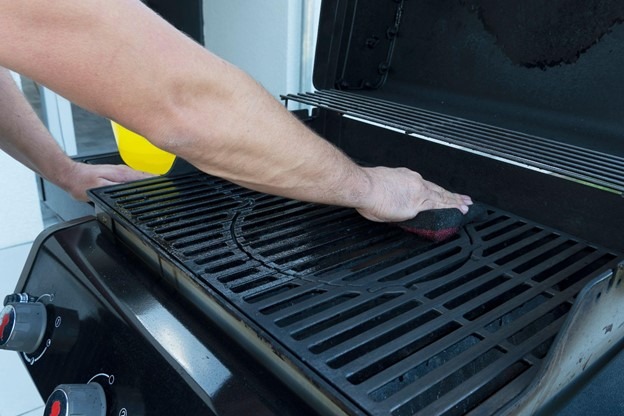Grilling is more than just cooking; it’s a ritual that brings people together. Whether you’re flipping burgers on the weekend or preparing a family feast, the choice of grill grate material can make a huge difference in how your food turns out. Many grill owners often overlook this part of the grill, but it’s the surface where all the magic happens.
So, which grill grate material gives better flavor and lasts longer — stainless steel or cast iron? The answer depends on what kind of griller you are. Stainless steel is easier to maintain and resists rust, while cast iron holds heat better and creates strong sear marks. Each has strengths that suit different cooking styles and environments.
Choosing between them is not just about cost or looks. It’s about flavor, care, and performance. Let’s go deeper into what makes these two materials stand apart.
What makes stainless steel grill grates resist rust better than cast iron?
Stainless steel grill grates are popular because they’re built to handle outdoor elements. The chromium in stainless steel forms a thin, invisible layer that prevents rust. This makes them ideal for humid or coastal environments where other metals would corrode quickly.
Stainless steel grates resist rust because of their protective chromium oxide layer, which shields the surface from moisture and air exposure. This barrier reforms even when scratched, keeping the surface durable and corrosion-free.
When compared to cast iron, stainless steel offers long-term reliability with minimal upkeep. You can leave them on your patio for years without much worry about rust. They don’t require oiling after every cook, and they’re easy to clean with a simple brush or sponge.
Quick Comparison Table
| Feature | Stainless Steel | Cast Iron |
|---|---|---|
| Rust Resistance | Excellent | Needs regular oiling |
| Maintenance | Low | High |
| Weight | Lighter | Heavier |
| Cleaning | Easy | Needs care |
If you live in a humid area or near the ocean, stainless steel grates are a smart investment. They maintain a clean look and performance even after years of use. For busy grillers who prefer convenience, this material offers peace of mind and long-lasting durability.
open.jpg)
How does cast iron extract flavor compared to stainless steel?
Cast iron grill grates are beloved for their ability to lock in flavor. The surface absorbs oils and fat over time, forming a natural seasoning that enhances every cook. This buildup not only prevents sticking but also infuses the food with subtle smoky notes that stainless steel can’t replicate.
Cast iron grates deliver richer flavor because they hold and distribute heat evenly, allowing caramelization and deep searing that stainless steel lacks. This makes steaks juicier and gives vegetables a delicious charred edge.
When you cook on a seasoned cast iron grate, your food benefits from consistent, radiant heat that penetrates evenly. However, the maintenance that keeps this flavor locked in can be demanding. Without regular cleaning and oiling, the iron can rust quickly.
Benefits of Cast Iron for Flavor
- Retains heat longer than stainless steel.
- Creates restaurant-quality sear marks.
- Adds a natural smoky taste through seasoning.
- Improves non-stick properties with regular use.

Cast iron is for those who enjoy the craft of grilling — cleaning, oiling, and maintaining the surface like a chef’s skillet. If you love flavor depth and traditional cooking feel, cast iron might be your match.
Which grill grate heats up faster: stainless steel or cast iron?
Heat-up time is a big factor for those who grill often. Stainless steel grates reach high temperatures quickly because they conduct heat fast. This makes them perfect for spontaneous grilling sessions or quick weekday dinners.
Stainless steel heats up faster, but cast iron retains heat longer once hot. That means stainless steel is better for quick cooks, while cast iron is ideal for extended grilling sessions where consistent temperature matters.
When comparing the two, stainless steel’s advantage is responsiveness. You can control the heat more easily, adjusting for different food types. Cast iron, on the other hand, shines when you need a steady heat for slow-cooked meats.

Heating Performance Table
| Aspect | Stainless Steel | Cast Iron |
|---|---|---|
| Heat-Up Speed | Fast | Slow |
| Heat Retention | Moderate | Excellent |
| Temperature Control | Easy | Stable once hot |
| Ideal Use | Fast grilling | Slow cooking & searing |
If you enjoy searing steaks or grilling large roasts, cast iron’s heat retention will deliver better crusts and even cooking. For everyday meals like burgers and veggies, stainless steel offers better control and less waiting time.
What maintenance differences should you expect between cast iron and stainless steel?
Maintenance can make or break your grilling experience. Stainless steel grates are low-maintenance, needing only a quick scrub after use. Cast iron, though, requires more care — cleaning, drying, and oiling after each cook to prevent rust.
Stainless steel needs minimal upkeep, while cast iron requires seasoning and oiling to stay in top shape. Failing to care for cast iron can cause rust spots, flaking, and even food contamination.
Maintenance Tips
| Material | Daily Care | Long-Term Care |
|---|---|---|
| Stainless Steel | Brush after cooking | Occasional deep clean |
| Cast Iron | Clean, dry, and oil | Re-season every few months |
To clean stainless steel, a simple wire brush and soapy water do the job. Cast iron demands patience — never soak it, and always dry it fully. Once maintained properly, it becomes almost non-stick and delivers a lifetime of use.
If you prefer simplicity and quick cleanups, stainless steel is the better fit. But if you enjoy hands-on care and the reward of perfect seasoning, cast iron pays off in flavor and longevity.

Which material is better for searing steaks on a gas grill?
Searing is the heart of grilling. That crispy, caramelized crust is what turns a good steak into a great one. Cast iron’s dense surface and heat retention make it ideal for searing. It maintains high temperatures even when you place cold meat on it.
Cast iron is better for searing steaks because it maintains high heat and transfers it evenly to the meat surface. Stainless steel can sear too, but it cools down faster when loaded with food.
When you drop a steak on cast iron, the surface doesn’t lose heat. That’s how you get those deep, restaurant-style grill marks. Stainless steel, while responsive, can lose temperature quickly with thicker cuts.
Searing Comparison
| Feature | Stainless Steel | Cast Iron |
|---|---|---|
| Sear Quality | Good | Excellent |
| Heat Drop with Meat | Moderate | Low |
| Best For | Light meats, veggies | Thick steaks, chops |
If searing is your main goal, cast iron wins. But if you like versatility — switching between searing, roasting, and delicate cooking — stainless steel offers more flexibility on a gas grill.
How long can each type of grate last in harsh outdoor conditions?
Durability depends on how you care for your grill and where you store it. Stainless steel grates can last for years with almost no corrosion, even in wet climates. Cast iron, however, will degrade faster if not maintained properly.
Stainless steel grill grates last longer outdoors because they resist corrosion and don’t require protective coatings. Cast iron’s longevity depends on regular maintenance and rust prevention.
Longevity Factors
| Condition | Stainless Steel | Cast Iron |
|---|---|---|
| Exposure to Rain | Low impact | High risk of rust |
| Storage | Can stay outdoors | Should be covered or stored dry |
| Average Lifespan | 10+ years | 5–8 years (with care) |
If your grill stays outside all year, stainless steel is the practical choice. It will look newer longer and maintain structural integrity. Cast iron grates thrive under care, but without it, they can crack or rust beyond repair.
Conclusion
Choosing between stainless steel and cast iron grill grates comes down to how you cook, how much time you spend on maintenance, and where you live. Stainless steel offers simplicity, quick heating, and weather resistance — perfect for busy grillers. Cast iron gives flavor depth, heat retention, and unbeatable sear marks — ideal for those who see grilling as an art form.
Both can deliver great results. The best one for you depends on your habits, not the hype. Keep your grate clean, your grill covered, and your flame steady — and every cookout will taste just right.
Here are 7 FAQ items based on People Also Ask and related search queries, with brief answers:
Q: Do stainless steel grates need to be seasoned like cast iron?
A: No, stainless steel grates do not require seasoning. They benefit from a light coat of oil now and then, but they do not need the same maintenance as cast iron. (Bbq House)
Q: Can cast iron grates rust if left outside?
A: Yes, cast iron grates can rust quickly if exposed to moisture and not oiled or covered. They require regular care to stay rust-free. (Industrial Metal Supply)
Q: Which grate material gives better grill marks on food?
A: Cast iron generally provides stronger and deeper grill marks due to its excellent heat retention, whereas stainless steel marks are good but not as intense. (Napoleon)
Q: Are stainless steel grates better for outdoor grills in humid climates?
A: Yes, stainless steel grates are more resistant to rust and corrosion, making them a better choice in humid or coastal conditions. (Quality Grill Parts)
Q: Is it harder to clean cast iron grates than stainless steel ones?
A: Yes, cast iron requires more care like drying, oiling, and avoiding soap or soaking; stainless steel is easier to scrub and clean. (Bbq House)
Q: How long will each type of grate last with proper maintenance?
A: With good care, both can last many years, but stainless steel tends to last longer with less upkeep; cast iron can last decades if well maintained. (Barbecues Galore)
Q: Should I choose cast iron or stainless steel if I mostly grill steaks?
A: If you most often sear thick steaks and want strong crusts, cast iron is likely the better choice. If you grill a mix of foods and want low maintenance, stainless steel may serve you better. (Napoleon)
